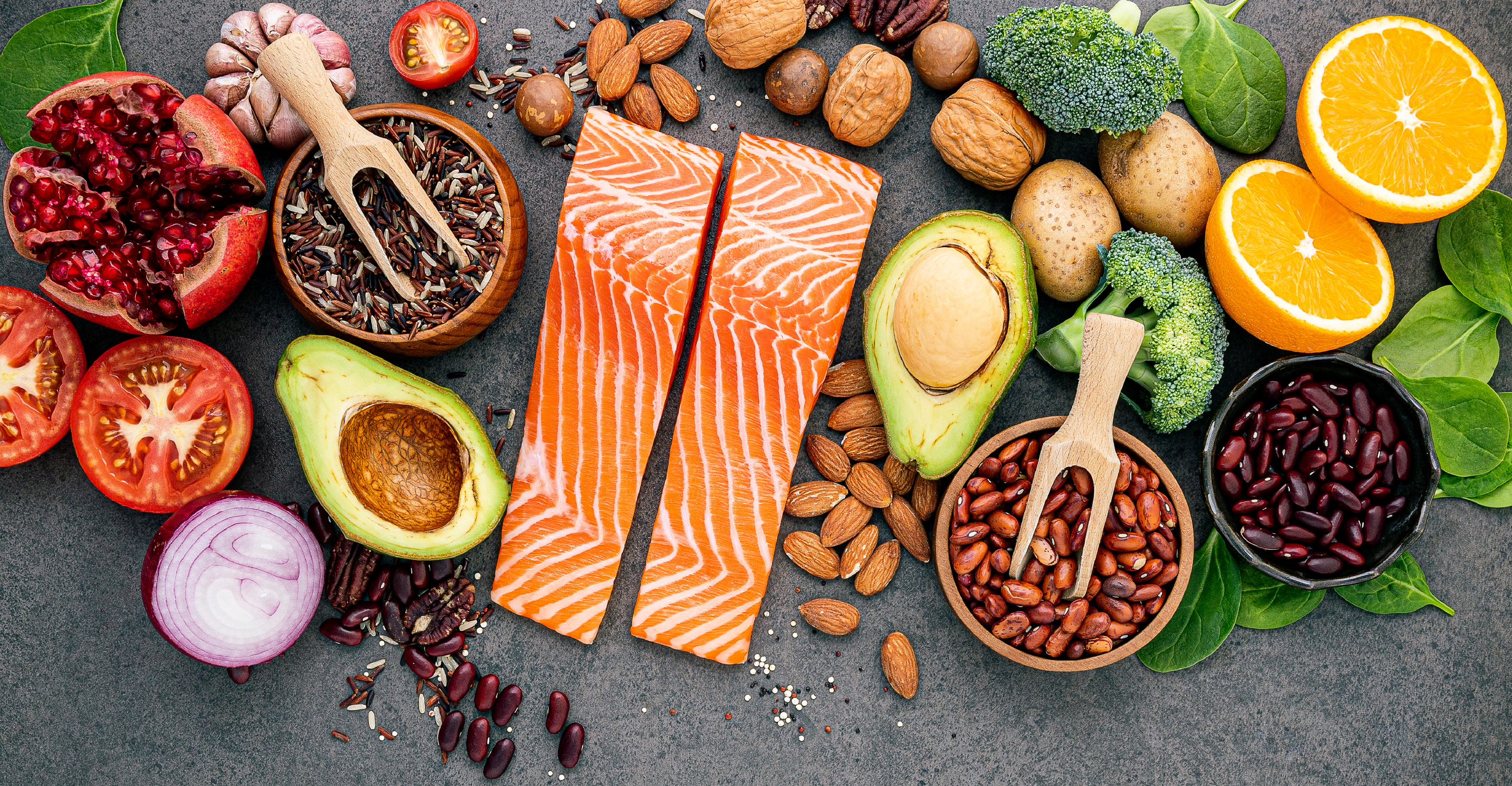When it comes to men’s health, the prostate is a small but significant gland that can influence overall well-being. As men age, maintaining prostate health becomes increasingly important, and many look for the best vitamin for prostate health to support this goal.
Prostate-related issues, such as benign prostatic hyperplasia (BPH) and prostate cancer, are common, and while no supplement can guarantee prevention or treatment, certain vitamins and minerals are frequently studied for their potential benefits. This blog explores these vitamins, providing insights into how they might aid in maintaining a healthy prostate.
Understanding Prostate Health
The prostate is a walnut-sized gland located just below the bladder in men. It plays a crucial role in the male reproductive system by producing seminal fluid, which nourishes and transports sperm. As men age, the prostate can undergo various changes, some of which can lead to health problems. Two of the most common prostate issues are benign prostatic hyperplasia (BPH) and prostate cancer.
Benign Prostatic Hyperplasia (BPH):
Benign Prostatic Hyperplasia, also known as an enlarged prostate, is a non-cancerous enlargement of the prostate gland that commonly affects men as they get older. The enlarged prostate can press against the urethra, causing symptoms such as frequent urination, difficulty starting and stopping urination, and a weak urinary stream. While BPH is not cancerous, it can significantly impact quality of life.
Prostate Cancer
Prostate cancer occurs when cells in the prostate gland grow uncontrollably. It is one of the most common cancers in men. Prostate cancer can be slow-growing or aggressive, and its treatment depends on the stage and severity of the disease. Early detection through regular screenings, such as prostate-specific antigen (PSA) tests, is crucial for successful management.
Prostate Health Maintenance
Maintaining a healthy prostate involves a combination of regular medical check-ups, a balanced diet, and an active lifestyle. Certain vitamins and minerals have been studied for their potential to support prostate health and may help reduce the risk of developing prostate-related conditions. Understanding which nutrients are beneficial and how they work can help men make informed decisions about their health.
Key Vitamins and Minerals for Prostate Health
The following vitamins and minerals are crucial and may play a role in maintaining optimal prostate health.
Vitamin D
Research suggests that vitamin D may play a role in reducing the risk of prostate cancer. Some studies indicate that higher levels of vitamin D can help slow the growth of prostate cancer cells. This vitamin is known for its ability to regulate cell growth and maintain immune function, which are crucial for overall health, including the prostate. However, it’s essential to maintain appropriate levels, as both deficiency and high doses can affect prostate health.
Foods rich in vitamin D include:
- Fatty Fish (Salmon, Mackerel, and Sardines)
- Fortified Dairy Products
- Egg Yolks
- Mushrooms Exposed to Sunlight
Selenium
Selenium is a trace mineral that has been studied for its potential to support prostate health. Selenium supplementation may help protect against prostate cancer, but again, it’s essential to avoid high doses. The Food and Drug Administration (FDA) suggests that moderate selenium intake could be beneficial without posing risks. Selenium works as an antioxidant, helping to reduce oxidative stress and inflammation, which are linked to cancer development.
Foods rich in selenium include:
- Brazil Nuts
- Fish (Tuna, Halibut)
- Lean Meats
- Whole Grains
Zinc
Zinc is vital for overall immune function and has been linked to prostate health. Zinc levels can help maintain a healthy prostate and may reduce the risk of developing prostate cancer. Zinc also plays a role in DNA synthesis, cell division, and immune function, all of which are essential for maintaining healthy prostate tissue.
Foods rich in Zinc include:
- Oysters
- Red Meat
- Poultry
- Beans
- Nuts
Beta-Sitosterol
Beta-sitosterol is a plant compound found in many supplements for prostate health. It may help reduce symptoms of BPH by supporting urinary function and decreasing inflammation in the prostate. Beta-sitosterol is believed to work by inhibiting the production of dihydrotestosterone (DHT), a hormone linked to prostate growth.
Foods rich in beta-sitosterol include:
- Avocados
- Nuts and Seeds
- Vegetable Oils
- Legumes

Omega-3 Fatty Acids
Omega-3 fatty acids, found in fish oil and flaxseed, have anti-inflammatory properties that may benefit prostate health. A diet high in omega-3s may help reduce the risk of prostate cancer and slow the progression of existing prostate cancer.
Foods rich in omega-3 fatty acids include:
- Fatty Fish (Salmon, Mackerel, Sardines)
- Flaxseeds and Flaxseed Oil
- Chia Seeds
- Walnuts
Lycopene
Lycopene is a powerful antioxidant found in tomatoes and other red fruits and vegetables. It has been linked to a reduced risk of prostate cancer. Lycopene works by neutralizing free radicals, thereby protecting cells from damage and reducing inflammation.
Foods rich in lycopene include:
- Tomatoes and Tomato Products
- Watermelon
- Pink Grapefruit
- Red Bell Peppers
Vitamin C
Vitamin C, another antioxidant, supports the immune system and helps in the absorption of other essential nutrients. It may also play a role in reducing the risk of prostate cancer by protecting cells from oxidative damage.
Foods rich in vitamin C include:
- Citrus Fruits (Oranges, Grapefruits)
- Berries (Strawberries, Blueberries)
- Kiwi
- Bell Peppers
- Broccoli
The Role of Supplements in Prostate Health
While vitamins and nutrients essential for prostate health can be obtained from a balanced diet, it’s not always feasible to get all the required amounts through food alone. Various factors can make it challenging to consume sufficient levels of these nutrients consistently. Dietary restrictions due to allergies or intolerances, personal food preferences, and modern diets often low in essential nutrients can all limit nutrient intake. Additionally, as people age, their bodies become less efficient at absorbing nutrients, and busy lifestyles can lead to irregular eating habits and reliance on convenience foods, making it difficult to maintain a diet that includes all necessary vitamins and minerals.
Supplementing with vitamins and minerals ensures adequate intake, providing a reliable source of essential nutrients regardless of dietary challenges. Supplements offer targeted nutrient delivery, allowing individuals to focus on specific vitamins and minerals known to support prostate health. They provide convenience and consistency, especially for those with busy schedules or limited access to a variety of fresh foods.
For individuals with absorption issues, supplements offer bioavailable forms that are easier for the body to absorb. Additionally, supplements come in various customizable options, making it easy to find a regimen that suits individual preferences. Overall, supplements not only support prostate health but also contribute to overall well-being by addressing multiple nutritional needs simultaneously.
Take Proactive Steps Toward Prostate Health With Uscriptives
Understanding prostate health, including conditions like benign prostatic hyperplasia (BPH) and prostate cancer, is fundamental to making informed decisions about one’s health. Regular screenings, a healthy diet, and an active lifestyle, complemented by appropriate supplementation, can significantly contribute to maintaining a healthy prostate and reducing the risk of related health issues. Always consult with a healthcare provider before starting any new supplement regimen, especially if you have existing health conditions or are taking other medications. By taking proactive steps, men can better manage their prostate health and overall well-being. Check out our website for quality Uscriptives vitamins designed to support prostate health today!
Publisher: Source link



